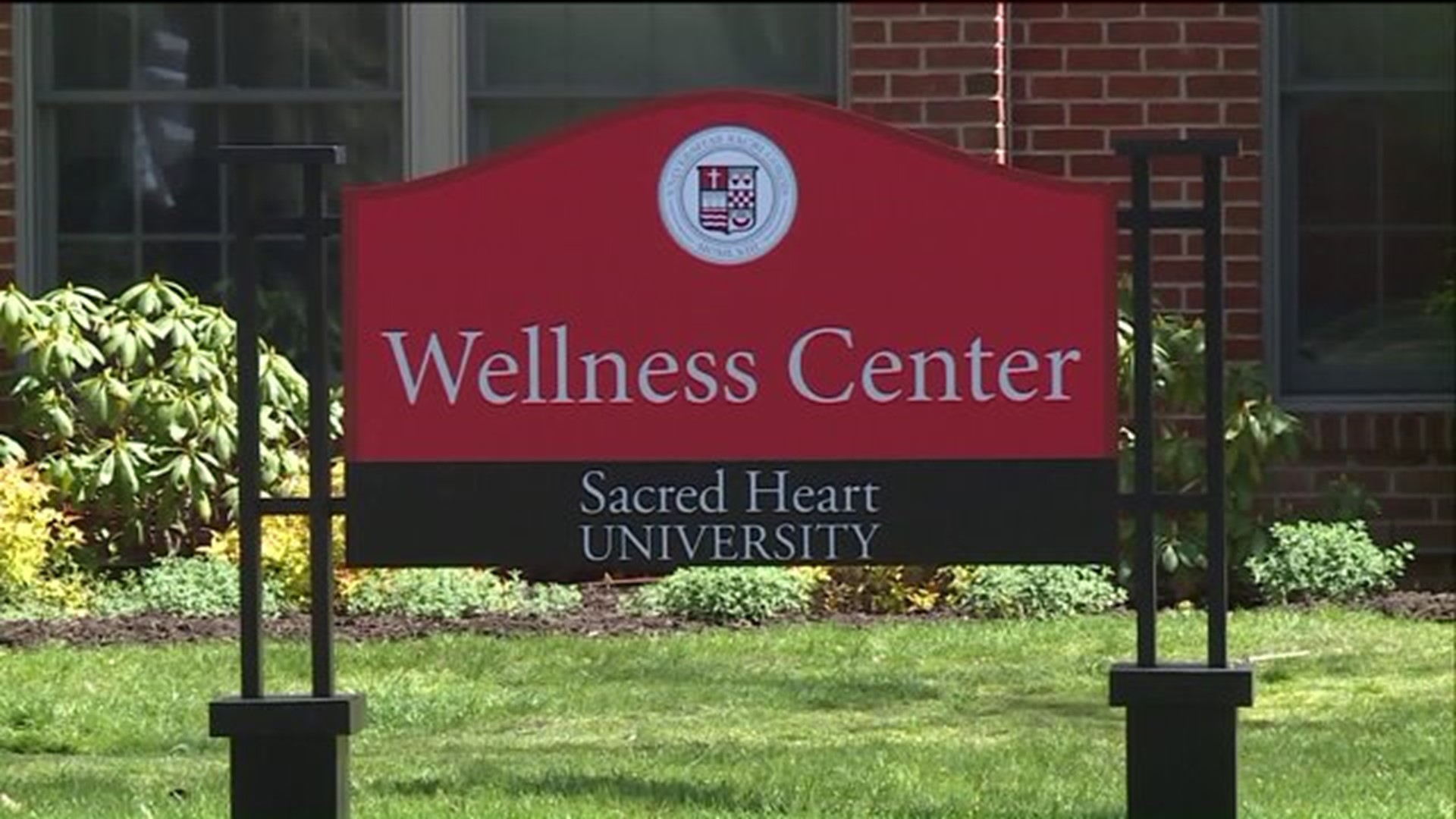FAIRFIELD -- The Department of Public Health is urging people to take precautions after a mumps outbreak was detected at Sacred Heart University.
DPH is reminding everyone to check their vaccination records and to be aware of the symptoms of mumps amid the outbreak, DPH said in a statement Thursday. There has also been an increase in mumps activity across the country, according to the agency.
According to the CDC, Mumps is a contagious disease caused by a virus. It typically starts with a few days of fever, headache, muscle aches, tiredness, and loss of appetite, followed by swollen salivary glands. Visible signs you’ve got it: swollen and painful cheeks.
Since March 22, eight Sacred Heart University students are confirmed to have had the mumps. Nine others are awaiting confirmation.
So why, with the first several cases confirmed at Sacred Heart over a month ago, is the university just now going public?
"Now that school has come to the end, and our students will be leaving Connecticut, some of them, we felt we should notify the public," said Anne Mavor, the director of Health Services for Sacred Heart.
This is the first outbreak for the school in quite some time.
"I've been here at Sacred Heart for the last 15 years and this is our first mumps," Mavor said.
The Fairfield Health Department and DPH have been working with the SHU Wellness Center to investigate their outbreak. Eight laboratory confirmed cases of mumps have been detected at the school, but there are an additional nine probably cases with symptoms. A student from another Connecticut university is also confirmed to have contracted mumps after spending time with an ill student from SHU.
The schools are also on the lookout for other sick students and expect additional cases to be confirmed.
People with mumps can spread the infection for up to two days before and five days after symptoms develop. Symptoms typically appear a 16-18 days after infection and most fully recover in several weeks.
Students who are sick are asked to remain isolated for five days. Coughing and sneezing are among the ways mumps the can be spread.
"We sent students home that could go home," said Mavor. "We've had students self isolate in their rooms. If they live off campus, and have their own bedroom, they've been able to self isolate there."
"The treatment is focused on staying hydrated and treating pain, which is usually just with over-the-counter pain medications for jaw pain," said Mavor.
However, the timing is not good. Finals are next week. One student says the floor she lives on is full of sick kids, hoping they don’t have mumps.
"A lot of people are concerned about getting it because they don't want to have to deal with it before finals," Madison Vuilleumier, a freshman at Sacred Heart University.
The illness has hit numerous campuses nationwide in recent months. Earlier this week, Boston.com reported than 40 members of the Harvard University school community were affected by a mumps outbreak there in the last two months.
The public health department in Cambridge, Mass. determined a month ago that all infected students to that point had received a mumps vaccine prior to contracting the infection.
All Sacred Heart students with confirmed and probable cases did have the vaccine as well.

